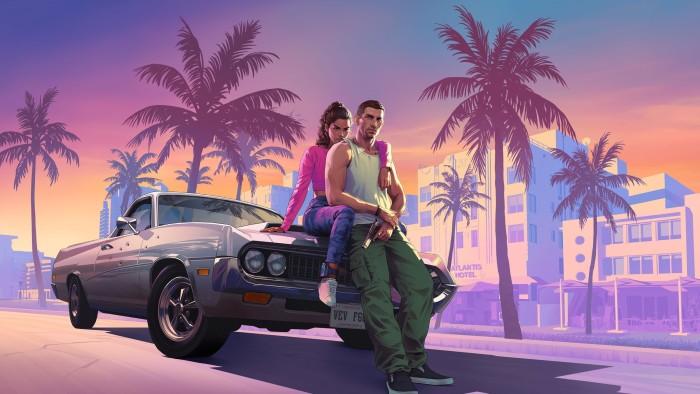Unlock the Editor’s Digest for free
Roula Khalaf, Editor of the FT, selects her favourite stories in this weekly newsletter.
We are living in an age of unprecedented gaming abundance. In 2024, almost 19,000 games were released via digital distribution platform Steam. This means you could have played 52 new games each day of the year, and still had some left over. And yet 2024 was actually considered a light year for big releases. This year promises far more, with new entries in major franchises such as Grand Theft Auto, Assassin’s Creed, Monster Hunter and the arrival of the newly announced Nintendo Switch 2 console. At the time of writing, 715 games have already been released in 2025.
If you ask gamers how it feels to live through this embarrassment of riches, you’ll hear the same answer over and over: it’s exhausting. Online communities are clogged with players saying they’re overwhelmed by the number of new releases. Too many games, too little time. How did we reach the point where the cornucopia of options feels more like a chore than a joy?
Throughout the 2010s, the barriers of entry to both game production and distribution lowered dramatically, resulting in a wave of small games dubbed the “indiepocalypse” that some worried would drown out all quality material. Though good games still often rose to the top, the accelerating pace of releases was then compounded by huge investment in gaming during the pandemic. Many of the games commissioned during that period are being released only now.
This deluge is a problem because gamers tend to be completists. We want to collect every gold coin, win every trophy. We are the community that turned “100 per cent” into a verb. And so we buy endless new releases and promptly consign them to a library of unplayed games spoken of in pained tones as “the backlog”, waiting for a mythical fallow period in the future when we’ll finally be able to catch up. The arrival of subscription services such as Xbox Game Pass has only ballooned backlogs to gargantuan proportions. No matter how doggedly you plug away at your list, it only seems to get longer.
Part of the reason backlogs keep growing is because of all the old games people are still playing. A report by industry analysts Newzoo found that 61 per cent of all playing time in 2023 was spent on games released six or more years ago, an increase of 15 per cent from 2021. Ultimately, those 19,000 games released last year are competing for just 8 per cent of total gaming hours. Perhaps it’s no surprise that the vast majority of them were played by virtually nobody.
This content flood is not an issue unique to gaming. My list of films to watch and books to read is just as long as the list of games I want to play. A difference is that it might take 15 hours to read a book or two hours to watch a film, but some of last year’s best-received games demand almost 100 hours of your time. That’s if you can even find the games you want to play. A few reader-supported websites and newsletters have found modest success, and some YouTubers certainly have influence, but the spaces to find gaming recommendations today are smaller and less diverse than ever.
It’s tough for gamers who have been following the medium for years. Once upon a time, they could easily keep track of their hobby, playing all the noteworthy releases in a year with time left for some duds. Now this is impossible. We have to recalibrate our approach in the era of gaming superabundance. You can no more be across all of gaming than you can be an expert in every genre of music.
One answer is to specialise. Are you into ultra-realistic farming games? Historically accurate second world war strategy? Japanese gay dating sims? There’s a rich niche for all tastes. And to keep up with wider gaming culture, it might be easier to tune into podcasts or watch players on Twitch rather than try to find space in your schedule for another 40-hour game. While gaming culture was once a tide you could float on, today it surges with the force and breadth of a great wave. If you don’t learn to surf, you’ll get washed away.
Read the full article here

